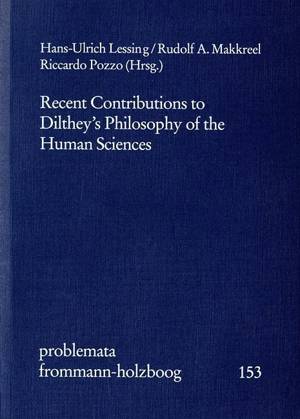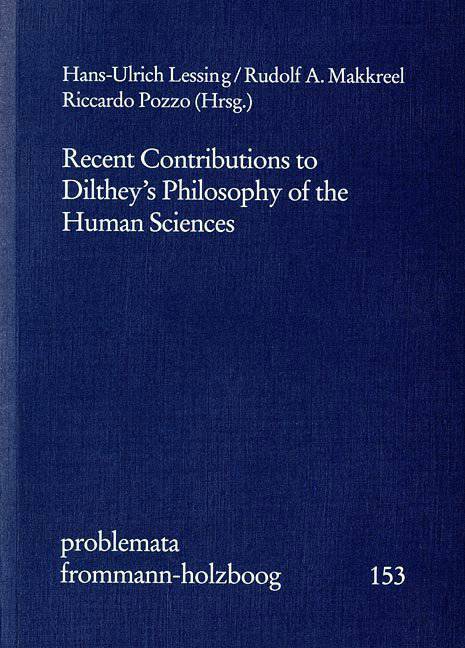
- Afhalen na 1 uur in een winkel met voorraad
- Gratis thuislevering in België vanaf € 30
- Ruim aanbod met 7 miljoen producten
- Afhalen na 1 uur in een winkel met voorraad
- Gratis thuislevering in België vanaf € 30
- Ruim aanbod met 7 miljoen producten
Zoeken
Recent Contributions to Dilthey's Philosophy of the Human Sciences
€ 47,45
+ 94 punten
Omschrijving
Understanding the human sciences, what they are and what they can achieve, is as important today, one hundred years after Dilthey's death, as it was when he was alive. Dilthey's own arguments and positions regarding a comprehensive philosophical foundation for the human sciences are still relevant. His program of defending the autonomy of what he called the world of human spirit (die geistige Weil) against positivistic approaches can be used as a paradigm for current assessments of humanistic research. On the 100th anniversary of Dilthey's death, ten renowned philosophers focus on two fields of interest - 'Dilthey and Kant' and 'Dilthey and Hermeneutics' - to show how Dilthey can productively contribute to today's discussions. The English and German essays will serve especially those academics who have dedicated themselves to the methodological renewal of 'intellectual history', to the history of philosophy and science as well as to the history of concepts.
Specificaties
Betrokkenen
- Uitgeverij:
Inhoud
- Aantal bladzijden:
- 258
- Taal:
- Duits, Engels
- Reeks:
- Reeksnummer:
- nr. 153
Eigenschappen
- Productcode (EAN):
- 9783772826047
- Uitvoering:
- Paperback
- Afmetingen:
- 148 mm x 18 mm
- Gewicht:
- 375 g

Alleen bij Standaard Boekhandel
+ 94 punten op je klantenkaart van Standaard Boekhandel
Beoordelingen
We publiceren alleen reviews die voldoen aan de voorwaarden voor reviews. Bekijk onze voorwaarden voor reviews.







